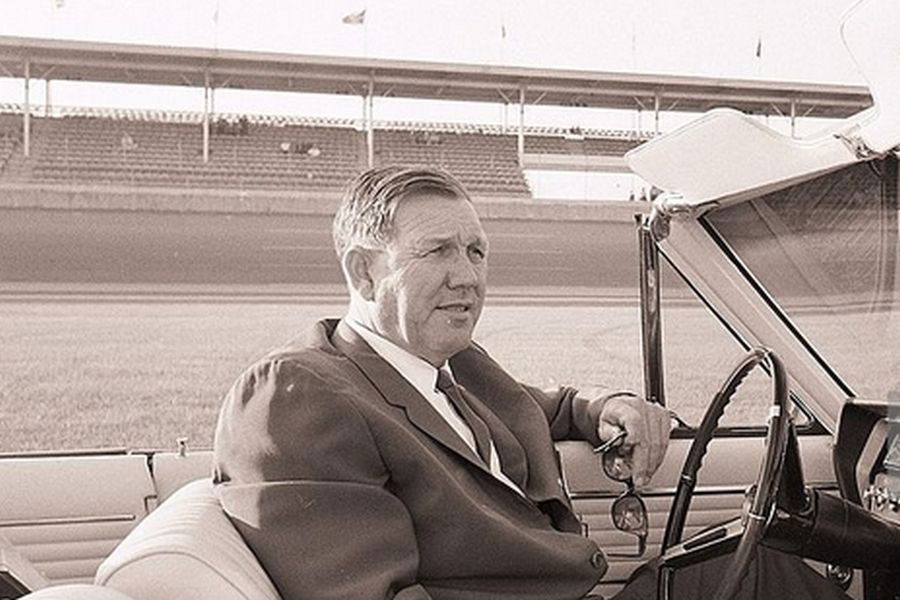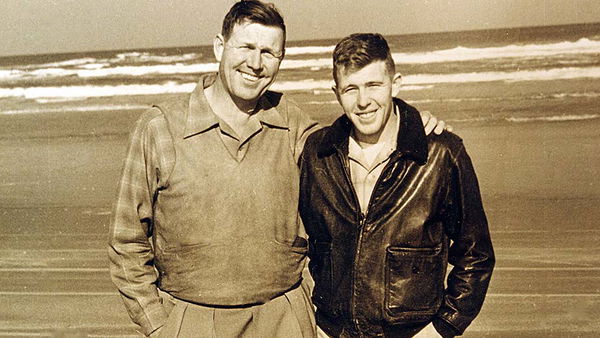

Focusing on the pivotal moments that shaped the NASCAR Cup Series, particularly the leadership transitions from Bill France Sr. to his son Bill France Jr., this narrative explores the challenges faced, the groundbreaking changes implemented, and the legacy of a sport that continues to unite enthusiasts from all walks of life.
Watch What’s Trending Now!
Bill France Sr. to Jr.: Dawn of a New Era
NASCAR, founded in 1948 by Bill France Sr., affectionately known as “Big Bill,” developed from a small organization on the shores of Daytona Beach to a vibrant and thriving motorsport. France Sr. led the organization until 1972, and his strong personality and caring approach were pivotal in shaping its early years.
NASCARMAN shared on
X, “January 10, 1972: Bill France retired as President of NASCAR and gave the position to his son, Bill France Jr. Under the respected leadership of France Jr, NASCAR continued its tremendous growth.”William Clifton France, commonly known as Bill Jr., was the leader of NASCAR from 1972 to 2000. This transition marked a significant turning point for the organization, as NASCAR needed new perspectives and strategies. One of Bill Jr.’s most impactful changes was the decision to significantly reduce the lengthy race schedule, which peaked at 54 races in 1969 and remained at 48 races in 1971. Recognizing the need for a more focused approach, especially with sponsorship from Winston cigarettes by R.J. Reynolds Tobacco Co., he curtailed the schedule to 31 races in 1972, signaling the start of what is known as the modern era of NASCAR.

This shift represented a move towards a more sustainable future for NASCAR, transitioning from the era defined by Big Bill, who had shaped stock car racing into a recognized sport since the late 1940s. Known for his strong-willed leadership style, France Sr. was a charismatic figure who engaged with others yet ultimately made the final decision, often asserting his authority with a bold personality. This new leadership heralded the beginning of a fresh chapter in NASCAR’s history.
Bill Jr. assumed leadership during a challenging period for NASCAR, marked by fluctuating car manufacturers and a scarcity of substantial team sponsors. One of his key initiatives was leveraging the power of television. By securing contracts with major networks, he brought NASCAR to the screens of millions who had never experienced a race firsthand. This increased visibility not only expanded the sport’s fan base but also attracted significant sponsorships, contributing to its growth and prominence.
Bill France Jr. died of lung cancer in 2007. In 2000, he passed the presidency of NASCAR to Mike Helton and made his son Brian France the CEO and chairman in 2003. The France family still owns NASCAR and has a controlling interest in International Speedway Corporation, a race track operator.
From a young age, Bill Jr. immersed himself in the racing world, starting with tasks like selling snow cones and putting up promotional materials before races. After graduating high school and serving in the Navy, he returned to Daytona Beach to build his career, taking on various roles and gaining essential knowledge.
While France Sr. was known for his sociable nature, Junior preferred the structure of his office and the tower at racetracks. A workaholic, he had a small circle of friends and often enjoyed outings with his wife, Betty Jane. Their dynamic allowed him to appreciate social interactions while remaining focused on work.
An avid deep-sea fisherman, he would use trips to foster relationships with team owners and drivers, always keeping the next race in mind. His dedication to NASCAR was evident; he lived and breathed the sport daily. Unlike his father’s instinctual approach, Bill Jr. was more methodical, which suited the changing times in racing.
After Bill Sr.’s death in 1992 from Alzheimer’s and Bill Jr.’s battle with cancer, which ended in 2007 during a race in Dover, Delaware, the leadership transition between father and son continues to resonate throughout NASCAR today.
What do you think were the most significant changes Bill France Jr. brought to NASCAR, and how did they shape the sport’s future?
